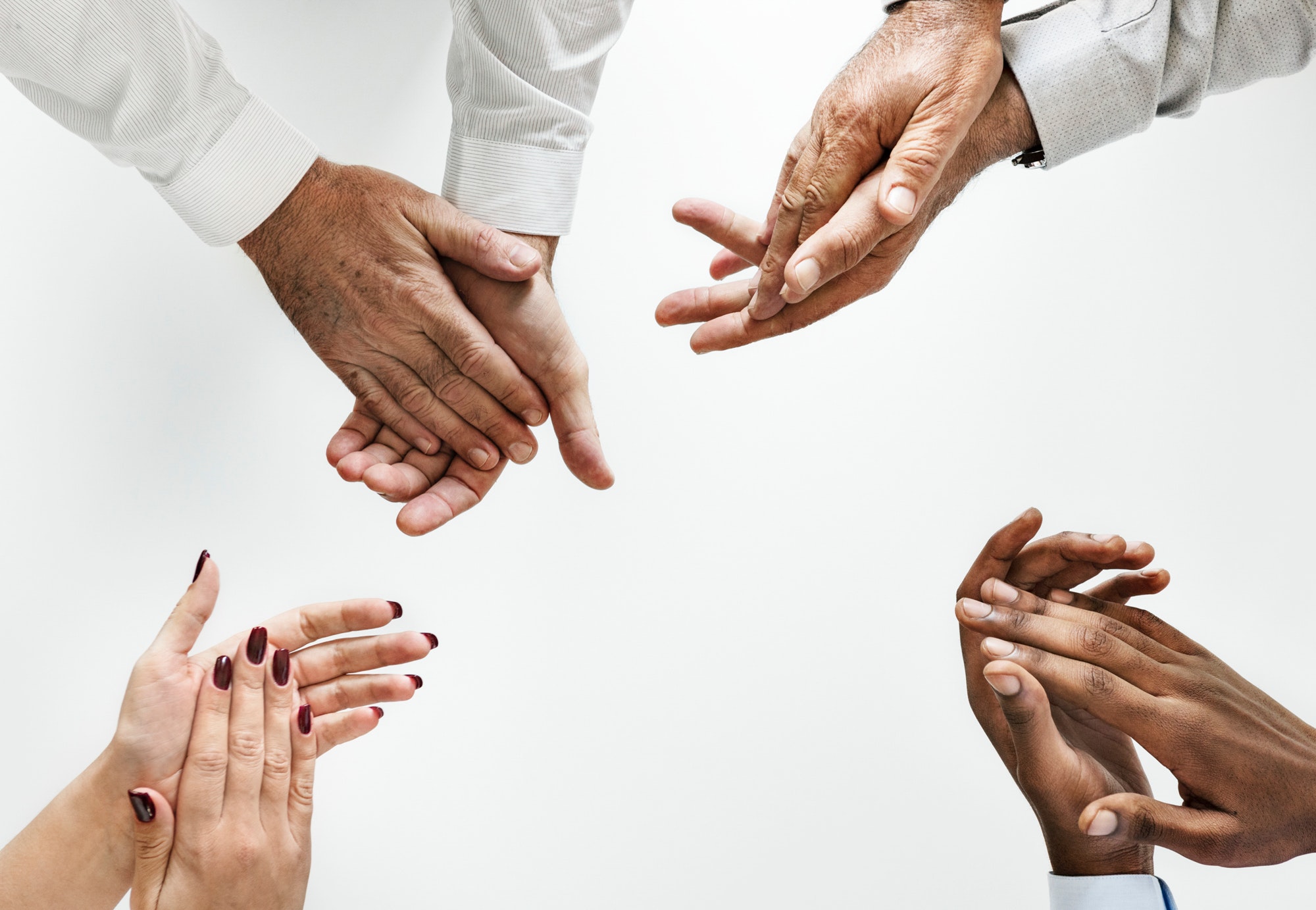
Let’s take a look at a very prevalent scenario.
I assume each of us has probably experienced this scenario at least dozens of times in their life:
You feel awkwardly insecure.
Your mood is shitty and unstable. All you want is an inner sense of peace. You don’t ask beyond that.
Everything seems black to you, preventing you from seeing the light of life and being connected to nature.
Even though you genuinely know that you are not a failure your self-esteem hits rock bottom really hard.
And… Of course, you keep telling yourself that there is actually nothing you can do about it.
We’ve all been there.
We’ve all faced that reality plenty of times when our worldview is the same from all angles – dark, hopeless and pessimistic.
We often call it a “realistic” point of view, only to justify our mediocrity to others. We are unwilling to take risks, as those seem to us “unrealistic”.
You often think to yourself:
I can’t (and don’t have to) change since me being in a permanent state of misfortune isn’t my fault after all.
It definitely has nothing to do with me, you tell to yourself, but with outer factors that, unfortunately, I have zero control over.
You blame the circumstances and refuse to take responsibility.
Maybe you aren’t “lucky” enough.
Or you know what…
Maybe you were designed for underachievement in the first place, who knows?
Regardless of who’s actually responsible
We all know how it ends, right?
Because we’ve been there (or maybe we’re still there?) the way the story unfolds is pretty predictable to most of us.
Inevitably, you find yourself in a dead-end cycle of negative self-talk that leads to a fruitless, unproductive behavior that leads to a more negative self-talk again and so on and so forth.
Negative self-talk -> Negative behavior -> Negative outcomes -> Negative self-talk –> ….
Unfortunately, this vicious cycle has the potential to be eternal, as long as a proactive action isn’t taken against it.
When you turn into the cycle, you are on your certain way to becoming lazy, unfocused and unmotivated. More often than not, you are also unable to function normally, healthfully, let alone in a manner that produces results.
As human beings, our behavior is dictated by our natural instincts which are constantly trying to get us rid of any discomfort we experience as soon as possible.
Therefore, what we tend to do is to seek a source of immediate relief, whatever it may take to lessen the pain and the discomfort we sense.
Most of the time, if you are like me, which I assume is the case since you are here, you choose to consume some self-help material, such as books, blogs, and videos in order to get fired up and getting out of the cycle. You do this on auto-pilot, without even realizing it might harm you.
While self-help is an amazing tool to temporarily overcome negative emotions in the short run, in the long run – you can’t entirely rely on it to succeed. When it comes to achieving a sustainable sense of worth, a constant positive attitude, and having a productive lifestyle – this innocent tool called self-help might do you more bad than good, if misused.
Success requires practice, and real-life massive action, beyond merely consuming self-help content.
Self-help is only the trigger to action.
Nothing less, nothing more.
The amount of action that is taken after reading self-help is what matters.

Self-help as an Addiction
If you are constantly seeking to fill the void with self-help kind of content, chances are you’ve developed an Addiction.
Don’t fall into the trap guys over the internet have fallen into these days, especially young guys that were born into the age of YouTube videos, Podcasts, and other instant sources of motivational content available at the click of a finger.
They’re simply addicted to getting fired up by what the internet has to offer. That may profit them in a duration of minutes, hours, days and even weeks but not for a lifetime.
A lifetime change is a habit change and habits are repetitive actions, not theories.
Right after watching a video or two, the addicted kids are actually experiencing an immediate increase in mood, motivation and even focus.
Their vision becomes clearer to them, they get a sense of purpose and they feel like they’re back on track.
Yet most of the time, this pump of motivation doesn’t last for long. It’s merely a transient delusion of achievement, and those kids find themselves back in an endless loop of motivation bursts that lead to nowhere.
Then they ask themselves – why am I so lazy?
It’s simply because they tricked their brain into thinking that something real has been done.
Are you one of those kids?
Self-improvement has become another form of entertainment nowadays, with more and more people becoming addicted to it. Essentially, it’s not different from a drug. As with drugs, you can find yourself being controlled by an external object, in this case -motivational videos or articles that lead to nothing but more videos and articles.
Some addicts might claim that it serves as a learning tool, to this I call BS.
You can use it to your advantage, of course, but don’t ever confuse consuming information with actual learning, which is a completely different thing.
Actual learning necessarily involves action.
(and cannot be achieved only with self-help consumption)
You can’t learn theory. You may store theory in your brain, you may remember theoretical data and be able to discuss it in different occasions, but you can’t learn it.
A real learning process is about gaining real-life experience, which has nothing to do with self-help theories and everything to do with actions.
What did you do today?
(Warning: watching a motivational video isn’t count)
Theories might help you and lead you in a certain direction, but it isn’t the main part of learning.
Action is.
First, Theory. Then, Action. Eventually, learning.
Successful people know how to balance those two worlds efficiently.
You should keep a healthy and balanced ratio between Theory and Action.
2:1 is good, 1:1 is better.
Now don’t get me wrong, self-help content is truly nice, useful and can be really enriching, but it’s just a little piece of the entire picture as well as a little piece of the entire journey that you’ll make on your way to success, health and wealth.
If you failed to understand it, you failed at everything, because the whole point of self-help in the first place is to lead an individual to take action, to change.
Being stuck in the cycle of consumption without action is the opposite intent of self-help from the beginning, and it only happens due to its addictive nature. In this sense, self-help is a double-edged sword.
Conclusion
It’s easy to mistake self-help consumption with actual progression. With that being said, it’s your responsibility to be aware and not to become another self-help impotent freak.
You can do that by keeping a balanced ratio between the amount of theory you consume to the amount of action you take.
Remember, self-help alone is pure self-deception and will delay your dreams, there’s no point in that.
Hard work and real-life experience following self-help, though, will make those dreams a reality.
It’s the combination of both that leads to success.
—-
In the meanwhile, it’s important to understand that you are not alone. Even the most successful people around the world have these self-issues attacking them from time to time.
It’s just life that’s trying to playfully mess with you every here and then, and it’s legitimate and alright. Get used to it:
“It’s about how hard you can GET HIT and keep moving forward.”
– Rocky Balboa
Bonus quote:
“Self-esteem is like a muscle, don’t you know? When you cease to practice, it shrinks.”
– Gal Hadad
Until next time,
Gal.




7 thoughts on “Are You a Self-help Addict?”
Self help as an addiction; I instantly thought about the millions of views on self help videos on youtube. If they would actually care about improving themselves, they would not watch that many youtube videos about improving themselves.